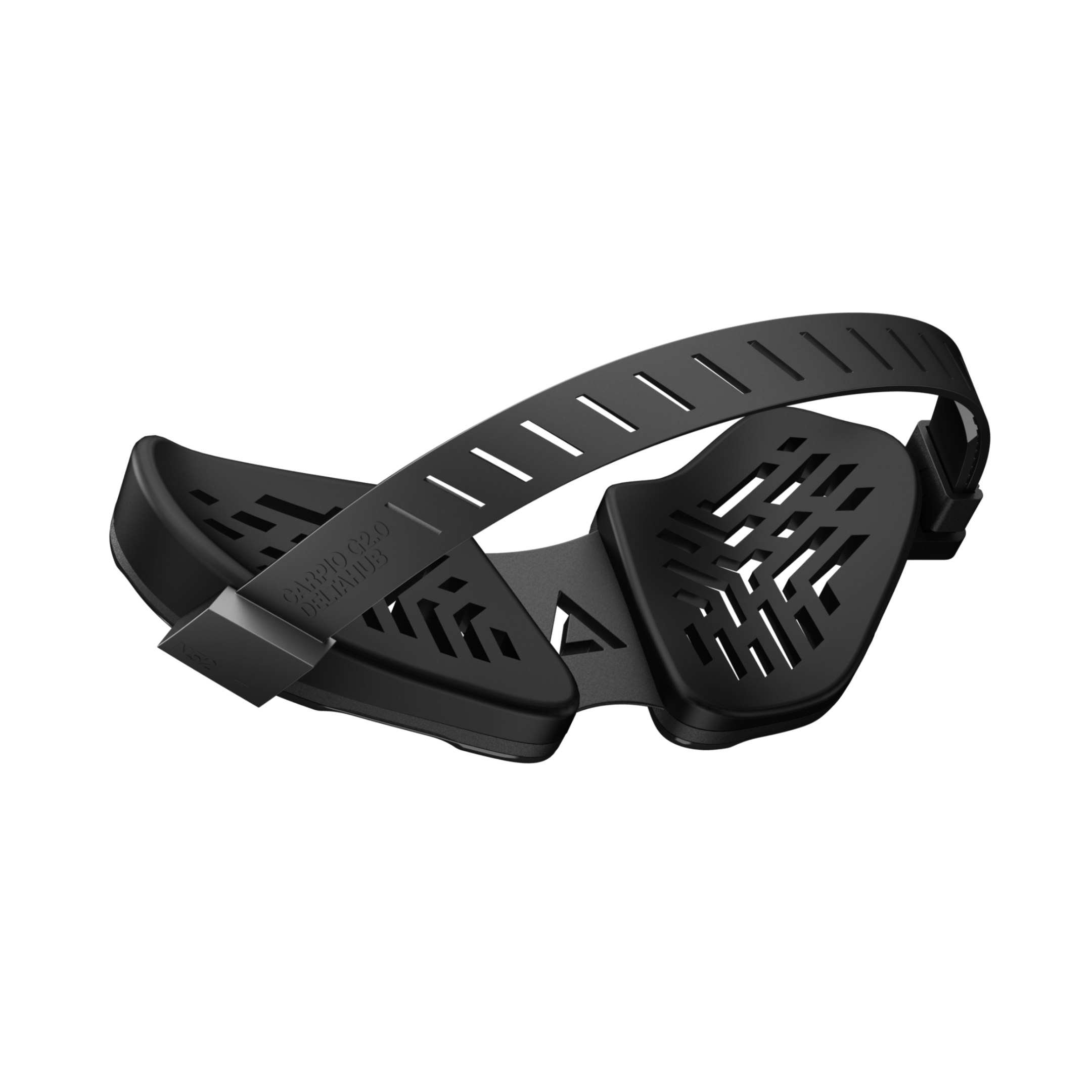
Trevor
I was experiencing pain in my wrist. I didn't think this would have worked as much but I figured I'd at least try it. Ended up being one of my best purchases. It helps so much. Zero pain and my aim in all games have been improved. It took me about 3 days of getting use to the product. Now I can't go without.

Alexa
I got this for my mom, who’s just starting to experience carpal tunnel from years of guitar playing, and it’s really helped relieve some of her discomfort when using the computer. Definitely worth it!

David
I am using a mouse all day for almost 10 hours at work. My wrist pain and fatigue was unbearable. The Carpio 2.0 has made such a difference for me. I just got another one for my left hand. Do yourself a favor and just buy the combo to start. You’ll end up doing it anyways!

Introduction to Carpal Tunnel Syndrome (CTS)
Carpal Tunnel Syndrome (CTS) is a common condition that affects millions of people worldwide. Characterized by tingling, numbness, and weakness in the hand and arm, CTS occurs when the median nerve, which runs from your forearm into your hand, becomes compressed at the wrist. As more people engage in repetitive tasks such as typing, gaming, or manual labor, the prevalence of this debilitating condition has only grown.
Symptoms of CTS can range from mild discomfort to severe pain that can hinder your ability to perform everyday tasks. CTS often begins gradually and worsens over time, especially if left untreated. Early detection and ergonomic interventions can be key in preventing long-term damage.

CTS is often the result of repetitive hand and wrist movements, which place pressure on the median nerve. Activities like typing, working with small tools, or even using a computer mouse for extended periods can exacerbate this condition. People in professions such as office work, manual labor, or gaming are at particular risk.
Beyond these occupational risks, factors such as age, genetic predisposition, and even certain health conditions like diabetes or arthritis can contribute to the development of CTS. As we age, our tendons and ligaments become less flexible, making them more susceptible to injury.

Living with Carpal Tunnel Syndrome can significantly affect many aspects of your life, including daily activities, work, and even your favorite hobbies. Tasks that were once simple—such as typing on a keyboard, cooking, or even holding a phone—can become sources of discomfort or pain. The condition often leads to reduced function in your hands and wrists, making it difficult to perform basic movements. Here’s a closer look at how CTS impacts daily life and leisure activities.

- Typing and Computer Work: Typing is one of the most common activities affected by CTS. Whether it’s for work, study, or personal communication, even small tasks like responding to an email can cause pain or discomfort.
- Household Chores: Simple tasks like cooking, cleaning, or using handheld devices can also be affected. The pain, numbness, and tingling in your hands may make these tasks slower and more challenging.
- Sleep: CTS symptoms often worsen at night, disrupting sleep due to hand pain or numbness.

CTS doesn’t just interfere with work; it can also impact your ability to enjoy hobbies. These activities often involve repetitive hand movements that can either exacerbate CTS or become difficult to perform because of the condition. Here are some hobbies that can be significantly affected:
Playing Musical Instruments: Instruments like the piano, guitar, and violin demand dexterity and repeated finger and wrist movements. Musicians who practice for long periods are at high risk of developing wrist strain or CTS. Over time, CTS can affect a musician's performance, limiting their ability to play fluently or with precision.

The physical strain and limitations caused by CTS can also take an emotional toll. Constant pain and discomfort may lead to frustration, anxiety, and even depression. The inability to enjoy your hobbies or perform daily tasks without pain can cause a feeling of helplessness, leading to a negative impact on your mental health and overall well-being.

For individuals who rely on their hands for work, whether in office environments or creative industries, CTS can be career-limiting. Productivity loss becomes a serious concern as tasks take longer to complete and require more effort. This can lead to missed workdays, reduced job performance, or even the need to change careers if the condition becomes too severe.
Carpio Ergonomic Wrist Rests can help prevent the strain that leads to these issues, offering support during both work and hobbies. By incorporating Carpio into your routine, you can mitigate many of the wrist problems associated with typing, gaming, and other activities that involve repetitive hand movements.

To combat the effects of CTS, ergonomics plays a crucial role. Ensuring that your workstation is set up to promote natural wrist movements can prevent the onset of symptoms. Ergonomic solutions such as wrist rests, adjustable chairs, and proper keyboard positioning can alleviate pressure on your wrists and improve posture.
By paying attention to how you use your hands, you can mitigate many of the risks associated with CTS. Incorporating ergonomic tools like wrist rests, such as those offered by Deltahub's Carpio line, is a proactive step toward protecting your hands from long-term damage.
Introduction to Carpal Tunnel Syndrome (CTS)
Carpal Tunnel Syndrome (CTS) is a common condition that affects millions of people worldwide. Characterized by tingling, numbness, and weakness in the hand and arm, CTS occurs when the median nerve, which runs from your forearm into your hand, becomes compressed at the wrist. As more people engage in repetitive tasks such as typing, gaming, or manual labor, the prevalence of this debilitating condition has only grown.
Symptoms of CTS can range from mild discomfort to severe pain that can hinder your ability to perform everyday tasks. CTS often begins gradually and worsens over time, especially if left untreated. Early detection and ergonomic interventions can be key in preventing long-term damage.
CTS is often the result of repetitive hand and wrist movements, which place pressure on the median nerve. Activities like typing, working with small tools, or even using a computer mouse for extended periods can exacerbate this condition. People in professions such as office work, manual labor, or gaming are at particular risk.
Beyond these occupational risks, factors such as age, genetic predisposition, and even certain health conditions like diabetes or arthritis can contribute to the development of CTS. As we age, our tendons and ligaments become less flexible, making them more susceptible to injury.
Living with Carpal Tunnel Syndrome can significantly affect many aspects of your life, including daily activities, work, and even your favorite hobbies. Tasks that were once simple—such as typing on a keyboard, cooking, or even holding a phone—can become sources of discomfort or pain. The condition often leads to reduced function in your hands and wrists, making it difficult to perform basic movements. Here’s a closer look at how CTS impacts daily life and leisure activities.
- Typing and Computer Work: Typing is one of the most common activities affected by CTS. Whether it’s for work, study, or personal communication, even small tasks like responding to an email can cause pain or discomfort.
- Household Chores: Simple tasks like cooking, cleaning, or using handheld devices can also be affected. The pain, numbness, and tingling in your hands may make these tasks slower and more challenging.
- Sleep: CTS symptoms often worsen at night, disrupting sleep due to hand pain or numbness.
CTS doesn’t just interfere with work; it can also impact your ability to enjoy hobbies. These activities often involve repetitive hand movements that can either exacerbate CTS or become difficult to perform because of the condition. Here are some hobbies that can be significantly affected:
Playing Musical Instruments: Instruments like the piano, guitar, and violin demand dexterity and repeated finger and wrist movements. Musicians who practice for long periods are at high risk of developing wrist strain or CTS. Over time, CTS can affect a musician's performance, limiting their ability to play fluently or with precision.
The physical strain and limitations caused by CTS can also take an emotional toll. Constant pain and discomfort may lead to frustration, anxiety, and even depression. The inability to enjoy your hobbies or perform daily tasks without pain can cause a feeling of helplessness, leading to a negative impact on your mental health and overall well-being.
For individuals who rely on their hands for work, whether in office environments or creative industries, CTS can be career-limiting. Productivity loss becomes a serious concern as tasks take longer to complete and require more effort. This can lead to missed workdays, reduced job performance, or even the need to change careers if the condition becomes too severe.
Carpio Ergonomic Wrist Rests can help prevent the strain that leads to these issues, offering support during both work and hobbies. By incorporating Carpio into your routine, you can mitigate many of the wrist problems associated with typing, gaming, and other activities that involve repetitive hand movements.
To combat the effects of CTS, ergonomics plays a crucial role. Ensuring that your workstation is set up to promote natural wrist movements can prevent the onset of symptoms. Ergonomic solutions such as wrist rests, adjustable chairs, and proper keyboard positioning can alleviate pressure on your wrists and improve posture.
By paying attention to how you use your hands, you can mitigate many of the risks associated with CTS. Incorporating ergonomic tools like wrist rests, such as those offered by Deltahub's Carpio line, is a proactive step toward protecting your hands from long-term damage.








Overview of Carpio Ergonomic Wrist Rests
The Carpio Ergonomic Wrist Rests by Deltahub are specifically designed to reduce wrist strain and improve comfort during prolonged computer use. Whether you’re a professional working long hours at a desk, a gamer, or someone who uses a computer frequently, the Carpio wrist rests can significantly ease pressure on your wrists.
The Carpio wrist rests are designed with silicone pads that lift the wrist slightly above the desk, ensuring a natural and comfortable position while you work or play. This promotes smooth, strain-free movement, making it an essential tool for anyone looking to prevent or manage CTS.































